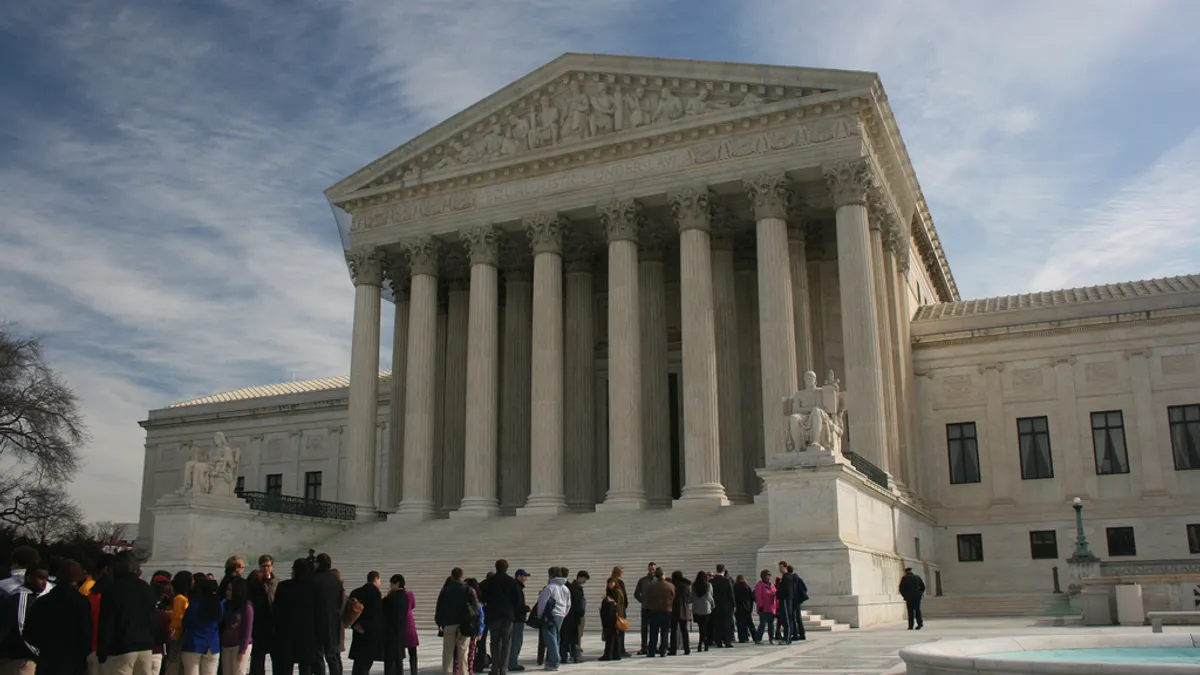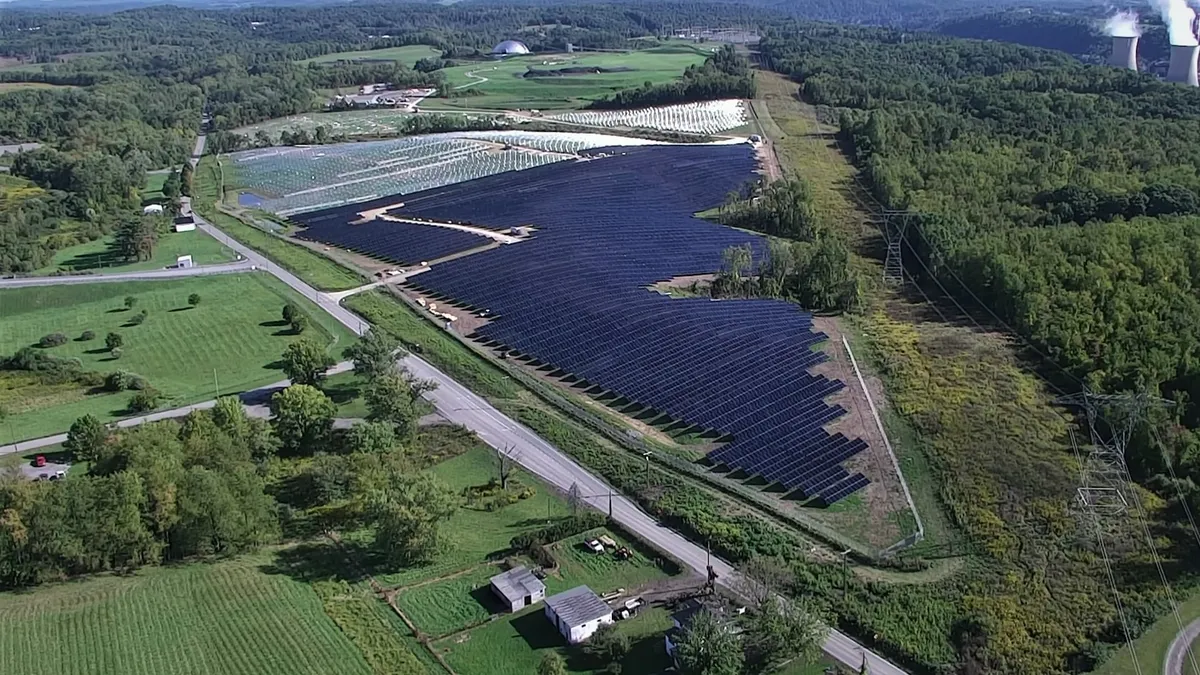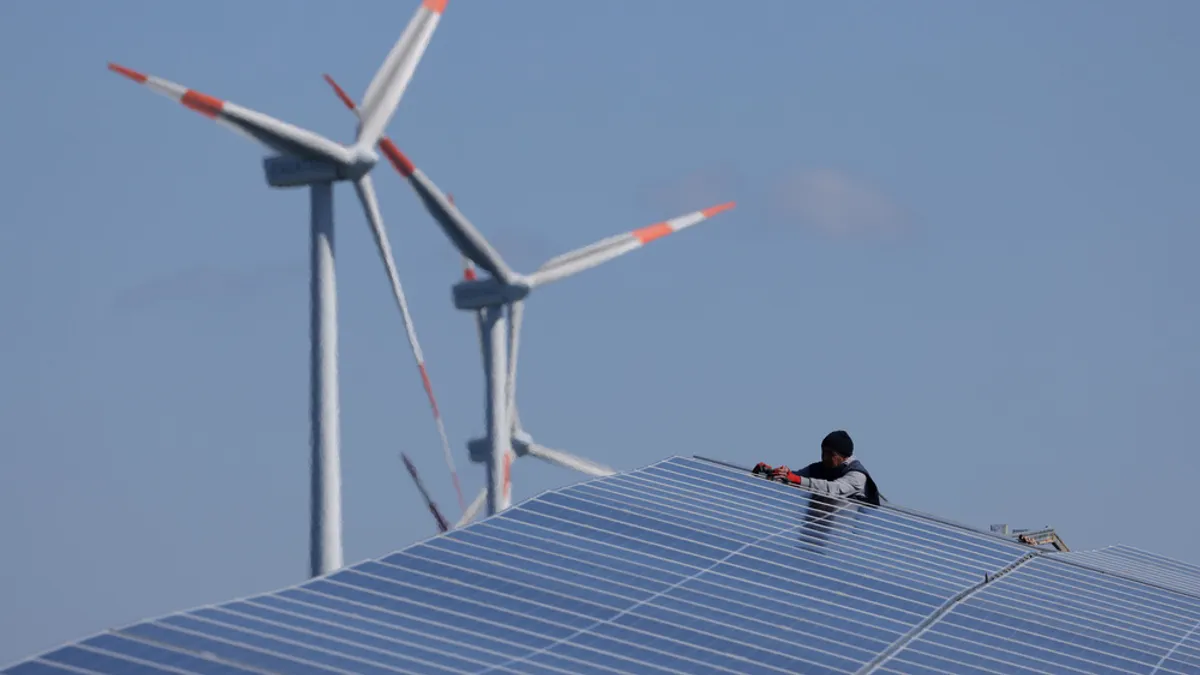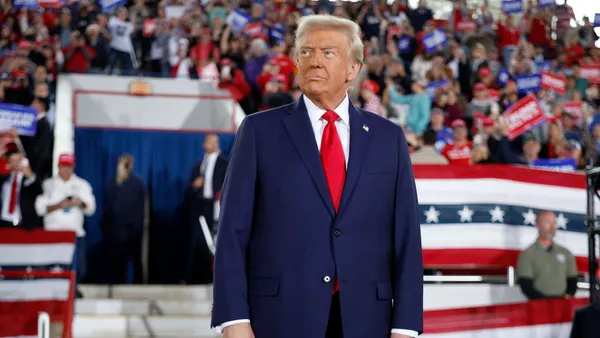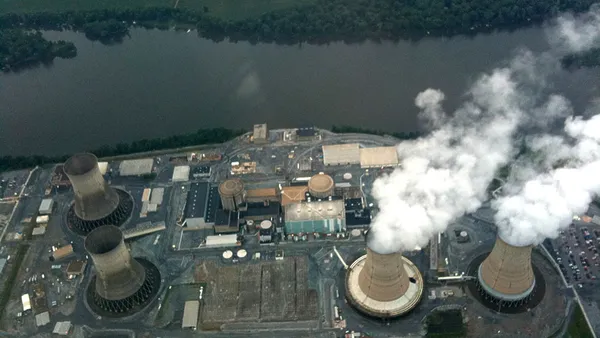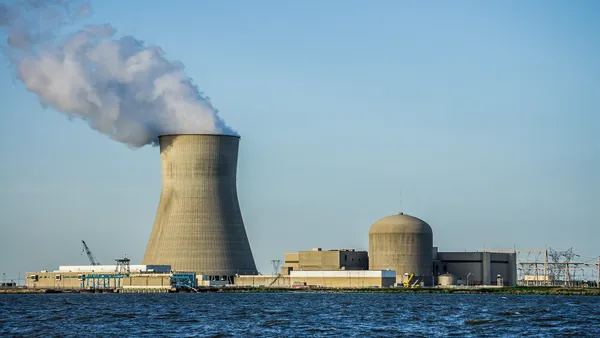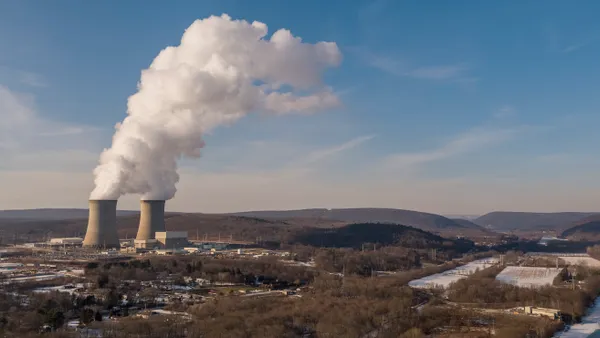Dive Brief:
- The U.S. Court of Appeals for the District of Columbia Circuit will not decide whether or not to put a stay on the implementation of the Clean Power Plan until after United Nations climate negotiations in Paris conclude at the end of December.
- Final motions to stay the Clean Power Plan's implementation will be due this Thursday, and the EPA will have until Dec. 3 to respond, the D.C. Circuit Court of Appeals determined last week. Final reply briefs would be due Dec. 23, followed by oral arguments, which have yet to be scheduled.
- Argus reports there have been five motions to stay the new rules from power generators, industry groups and states who say implementing the new rules before they are litigated could cause irreparable harm.
Dive Insight:
Final publication of the Clean Power Plan in the Federal Register has set off a barrage of court filings from dozens of parties and groups, and the D.C. Circuit last week took steps to bring some order to the process.
The court approved a request by the EPA to complete the first stage or arguments on whether to stay the law, with the deadline for new filings set for Nov. 5. In doing so, it made clear that no decision on a stay would be made until after the Paris climate talks, widely considered one of the best chances in decades to get a meaningful international accord on greenhouse gas emissions and climate change mitigation.
Opponents of the Clean Power Plan want to see its implementation stayed while the full legal challenge plays out – a process expected to take years and ultimately wind up before the U.S. Supreme Court. But states and power generators say they are already beginning to accrue costs, though there is no way to tell if the rule will ultimately be upheld.
Backers of the Clean Power Plan — which calls for a nationwide 32% reduction in greenhouse gas emissions below 2005 levels by 2030 — say that a binding pollution commitment from the U.S. is critical in bringing reticent nations to the table with their own emissions cuts. Already, the American plan helped pave the way for the historic U.S.-China climate accord, in which the Chinese committed to peak their greenhouse gas emissions for the first time in history.
It took more than two months from the time the final CPP goals were announced for the Obama administration to publish the rule. The courts rejected multiple bids for an early stay, saying parties would have to wait for the Federal Register publication.
Since that time, more than two dozen states have teamed up with coal companies to challenge the plan. West Virginia Attorney General Patrick Morrisey, who is leading the challenge, said the agency overstepped the regulatory authority granted to it under the Clean Air Act, a landmark clean air package passed first in 1970 and updated in 1990.
Oklahoma Attorney General Scott Pruitt separately filed a challenge, saying “the so-called Clean Power Plan threatens the reliability and affordability of power generation across the nation because it unlawfully coerces states into shuttering fossil-fuel generated electricity. ... The EPA has no authority under the Clean Air Act to achieve what it proposes."
Pruitt said Oklahoma will pursue all legal options to fight the plan, which the state believes will leave consumers with higher utility rates and a less reliable power supply.



